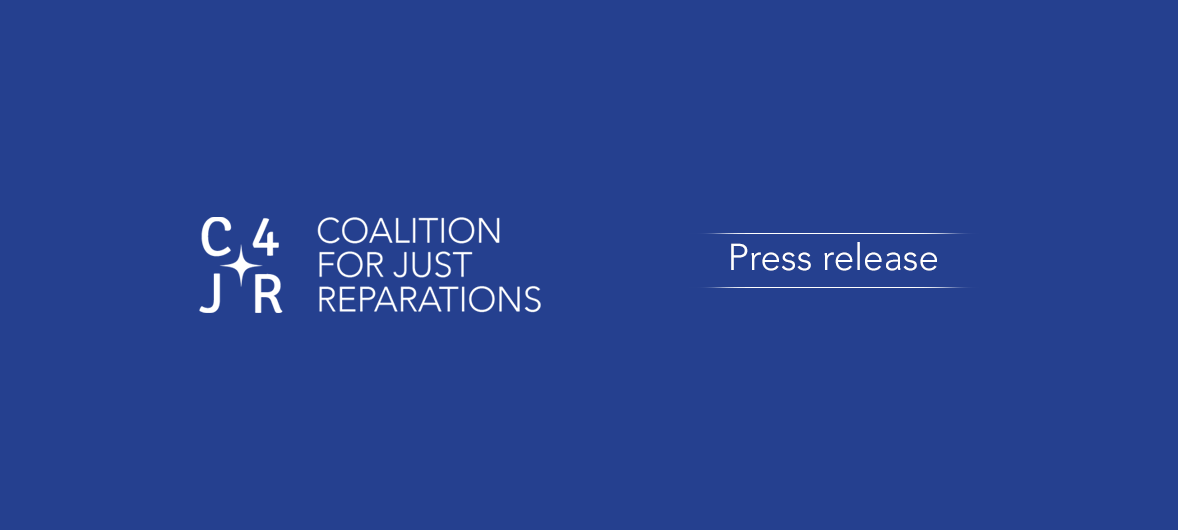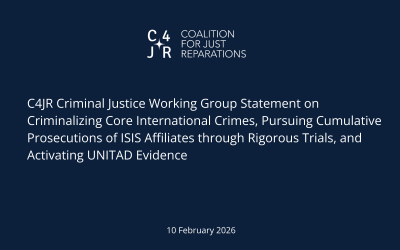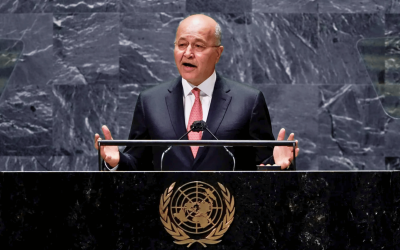Position Paper on a survivor-centered ISIL Accountability Mechanism in Iraq
Eight years ago, on August 15, 2014, militants of the so-called Islamic State in Syria and the Levant (ISIL) also known as Da’esh, either killed or enslaved more than 1,250 inhabitants of the Yezidi village of Kocho. Four hundred men were killed on that day, and many of the 800 kidnaped women and children still remain in captivity. The Kocho massacre constitutes only a fraction of the atrocities ISIL committed in Iraq.
Despite the fact that the UN Investigative Team to Promote Accountability for Crimes Committed by Da’esh/ISIL (UNITAD) has made progress in collecting evidence of ISIL crimes against Yazidis, Shia, Sunni, Christian, Kaka’i, Shabak, and Turkmen Shia and even found “clear and convincing evidence that genocide was committed by ISIL against the Yazidi as a religious group”, no tangible progress has been made in the past eight years in Iraq to prosecute those responsible for these horrific crimes for what they are: genocide, war crimes and crimes against humanity.
In the words of the Yazidi Survivors Network (YSN):
“Iraq is where the terror started for us, Yazidis; It is from where most ISIL leaders are from; It is where we were killed or abducted from.
If ISIL members are not persecuted in Iraq, then where will they be prosecuted?
It is important that this justice takes place in Iraq, only then will we be able to trust our country again. We have been waiting for this for eight years, until when will we need to wait?”
The necessity of ensuring criminal accountability for these atrocities has been recognized by Iraqi lawmakers: the Yazidi Survivors Law enacted in March 2021 declared, in Article 7, that crimes committed by Daesh against the Yazidis, Turkmen, Christian, and Shabak minority groups shall be considered genocide and crimes against humanity, and that the Ministry of Foreign Affairs will work to reveal these crimes in international forums and to initiate criminal proceedings against the perpetrators.
On the anniversary of the Kocho massacre and to honor all ISIL survivors, Iraqi NGOs allied in the Coalition for Just Reparations (C4JR), publish a Position Paper containing basic legal, policy, and practical contours of a mechanism to bring ISIL members responsible for genocide, war crimes and crimes against humanity to justice for their crimes.
This Position Paper was the outcome of over a year of intensive discussion between C4JR members aimed at identifying principles on which the long overdue criminal accountability mechanism for ISIL should be based. The discussion was informed by the views of survivors and by past experiences of accountability processes for atrocity crimes in Iraq, and grounded in Iraqi as well as international law and best practices.
The purpose of this Position Paper is twofold:
- to bring fresh momentum to Iraq’s commitment to pursue criminal accountability for international crimes committed by ISIL in Iraq by delineating best international practices on involving survivors and respecting their rights and needs during criminal proceedings;
- to provide a platform for Iraqi and international NGOs and activists through which consultative, substantive, and informed advocacy may be conducted with Iraqi and international partners suggesting concrete solutions, rather than general demands, on how to respect and acknowledge individual survivors, their families, and communities in the prospective criminal proceedings.
To that end, we, the undersigned organizations implore the Iraqi authorities to seriously consider suggestions outlined in the Position Paper, to search for and decide on a way to end impunity for human rights violations committed by ISIL members and accomplices in Iraq, in consultation with survivors and civil society and in line with international and national law.
Sincerely Yours,
[C4JR member organizations and partners]
Downloads
Position Paper on a survivor-centered ISIL Accountability Mechanism in Iraq (English)



